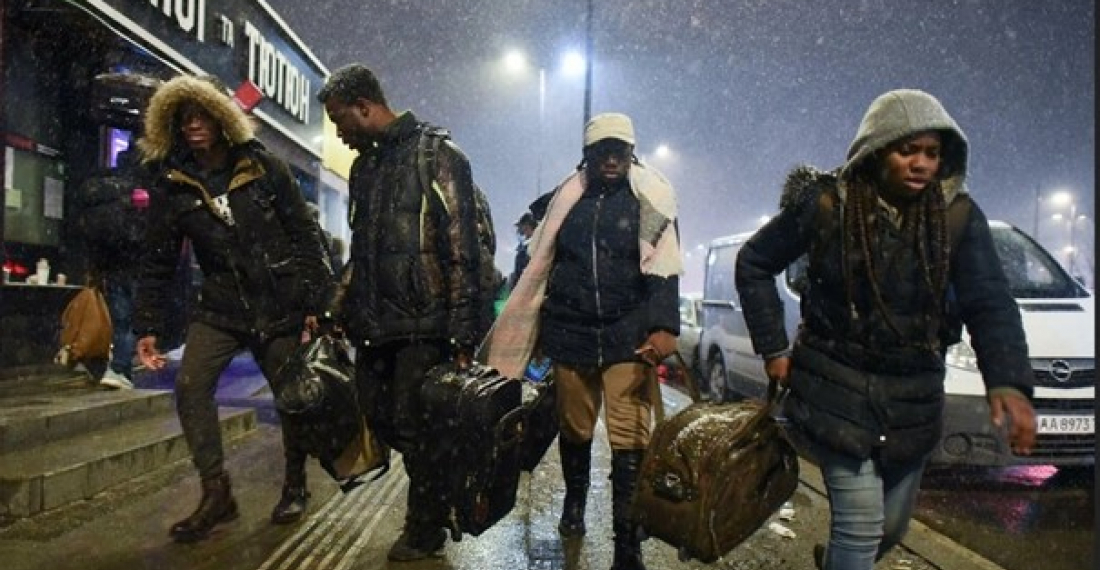Ukraine has established a hot line for African citizens who are trying to flee the conflict and who encounter difficulties, amidst reports of incidence of racism in the melee as hundreds of thousands of people flee away from the fighting.
In a statement late Monday, The African Union (AU) condemned any "unacceptable differential treatment" of African citizens in Ukraine who are denied the right to cross the border to safety as they try to flee the armed conflict in Ukraine.
Indeed, accusations of racist behaviour at the borders have multiplied in recent days as many Africans - particularly students - attempt, like hundreds of thousands of Ukrainians, to reach neighbouring countries.
On social networks, the popular hashtag #AfricansinUkraine is used to describe scenes of high tension where Africans are treated differently or even prevented from boarding trains or buses leaving the country.
According to testimony gathered by DW News on the ground, Ukrainian border police would prioritise Ukrainians to cross the border and send others, such as Africans, to the back of the queue, which can stretch for kilometres.
According to the United Nations, at least 520,000 people have fled Ukraine to Poland and other neighbouring countries following the Russian invasion. This is the largest displacement of people in Europe since the end of World War II.
Among these refugees, a quarter of the 75,000 foreign students in Ukraine are Africans, mainly from Nigeria, Morocco, Algeria, Egypt, and Ghana. They are primarily attracted by the low cost of tuition and the established reputation of medical schools.
In reaction to the scenes reported on social media, the African Union has therefore denounced a discriminating behaviour, which constitutes a "breach of international law" according to the AU statement.
The Ukrainian government has a visa-free policy with its European neighbours, which makes it relatively easy for Ukrainians to leave their country following the Russian invasion. Regarding displaced African nationals - even though they usually must apply for a Schengen visa - the European Commission explained that the borders were open to third-country nationals who were living in Ukraine and wished to continue their journey to their country of origin.
Furthermore, Poland has also published several tweets indicating that it accepts all refugees, regardless of their nationality.
In a tweet posted by the Bureau of African Affairs on Monday, the US said it was coordinating with various UN agencies on the ground to guarantee that every individual "regardless of race, religion, or nationality" can seek refuge equally outside Ukraine.






